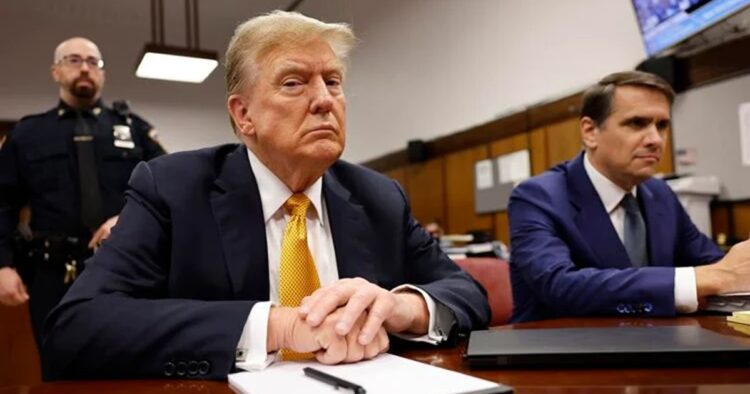Former US President Donald Trump’s recent guilty verdict in his hush-money case has stirred widespread controversy and international reaction. Trump, from his New York headquarters, condemned the verdict, claiming it was a rigged trial akin to remarks from the Kremlin.
This prompted concerns from analysts, including Fiona Hill, a former White House national security adviser, who suggested that Trump’s attacks could be advantageous to autocrats like Vladimir Putin, potentially impacting global dynamics and the upcoming US presidential election.
Support for Trump’s stance emerged from autocratic nations, with Russia agreeing with his assessment of the verdict, labeling it as the elimination of political rivals. Similarly, Hungary’s Prime Minister Viktor Orban hailed Trump as a man of honor, urging him to continue fighting. China’s state-owned Global Times newspaper criticized the US presidential election process, further complicating the situation.
Analysts highlight Putin’s likely satisfaction with the chaos unfolding in the US, as it aligns with his goal of widening divisions in Western societies.
Russia has been accused of previous interference in US elections and other Western democracies, aiming to undermine democratic institutions and advance its own agenda.
Trump’s criticism of the US justice system, along with his allies, provides fodder for potential propaganda and influence operations, particularly aimed at swing voters in battleground states. This narrative undermines the traditional portrayal of the US as a beacon of democracy and human rights, potentially legitimizing autocratic regimes in the eyes of their citizens.
Trump’s attacks on democratic institutions echo tactics employed by authoritarian leaders like Putin. This messaging not only impacts domestic perceptions but also influences international relationships, with countries like China and Russia seeking to capitalize on the perceived weaknesses within Western democracies.
The broader implications of Trump’s conviction and the ensuing political turmoil extend beyond domestic concerns. It could potentially reshape global security architecture, with Russia likely attempting to exploit the situation to sow discord within NATO and weaken ties between member states and the US.
As Western governments navigate the delicate balance between respecting the US justice system and addressing international concerns, Putin and other autocratic leaders stand to benefit from the ensuing chaos.
Trump’s actions inadvertently contribute to the erosion of democratic norms and the empowerment of authoritarian regimes on the world stage.

















Comments